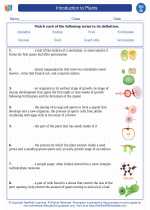Endoparasites
Endoparasites are organisms that live inside the body of another organism, known as the host. These parasites can be found in various locations within the host, such as the gastrointestinal tract, blood, tissues, or organs. Endoparasites can be protozoa, helminths (worms), or other types of organisms.
Types of Endoparasites
- Protozoa: These are single-celled organisms that can cause diseases such as malaria, amoebiasis, and giardiasis.
- Helminths: This group includes flatworms (tapeworms and flukes) and roundworms (nematodes) that can infect the gastrointestinal tract, liver, lungs, and other organs.
- Other organisms: Some endoparasites are not classified as protozoa or helminths, such as certain fungi and bacteria that can live inside the host's body and cause diseases.
Life Cycle
Endoparasites often have complex life cycles that involve multiple stages and may require different host species to complete their life cycle. For example, some endoparasites have intermediate hosts, where the parasite undergoes specific developmental stages before infecting the final host.
Transmission
Endoparasites can be transmitted to humans and other animals through various routes, including ingestion of contaminated food or water, contact with infected soil, or through insect vectors such as mosquitoes and flies.
Effects on Hosts
Endoparasites can cause a wide range of health problems in their hosts, including gastrointestinal issues, anemia, organ damage, and immune system suppression. In severe cases, endoparasite infections can be life-threatening.
Prevention and Control
Preventing endoparasite infections involves measures such as practicing good hygiene, avoiding consumption of contaminated food and water, and implementing vector control strategies. Additionally, regular deworming and use of antiparasitic medications can help control endoparasite infections in both humans and animals.
Study Guide
When studying endoparasites, it's important to focus on the following key points:
- Understanding the different types of endoparasites and their characteristics.
- Learning about the life cycles and transmission routes of common endoparasites.
- Exploring the effects of endoparasite infections on the host's health.
- Identifying preventive measures and control strategies for endoparasite infections.
- Studying specific examples of endoparasites and the diseases they cause, including malaria, amoebiasis, and various helminth infections.
By mastering these concepts, you'll have a solid understanding of endoparasites and their significance in the field of biology and public health.
.◂Biology Worksheets and Study Guides High School. Introduction to plants
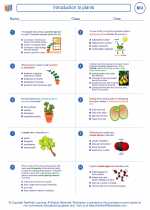
 Worksheet/Answer key
Worksheet/Answer key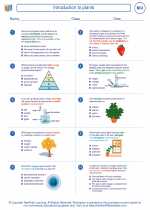
 Worksheet/Answer key
Worksheet/Answer key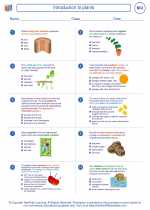
 Vocabulary/Answer key
Vocabulary/Answer key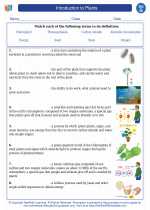
 Vocabulary/Answer key
Vocabulary/Answer key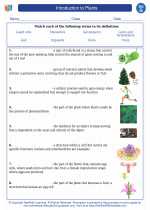
 Vocabulary/Answer key
Vocabulary/Answer key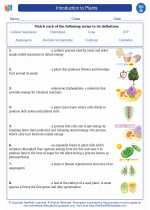
 Vocabulary/Answer key
Vocabulary/Answer key
 Vocabulary/Answer key
Vocabulary/Answer key